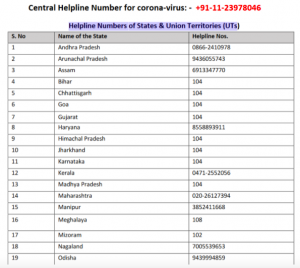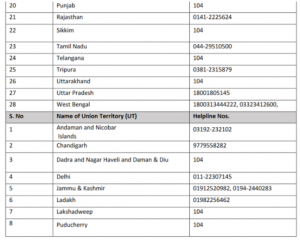In India, the Government’s regulator for drugs CDSCO (Central Drugs Standard Control Organization) has allowed two vaccines which are:
- Covishield (Oxford-AstraZeneca vaccine developed in the UK) and
- Covaxin (by Bharat Biotech).
These vaccines have only received the permit to be used in a restricted manner for emergency situations. This means that they can be used despite the companies not having completed the entire procedure of clinical trials .
Cost and manner of vaccination
Currently, the vaccine provided in the first phase of vaccination will be given free of cost. Two doses of the same vaccine, given 28 days apart, will be required to be taken by an individual to complete the vaccination
Priority groups getting vaccinations
The first phase of the Covid-19 vaccine will be administered to priority groups including:
- Health Care Workers (HCWs): Health care providers and workers in health care settings (Public and Private), including ICDS (Integrated Child Development Services) workers.
- Frontline Workers (FLWs): Personnel from State and Central police department, armed forces, home guard, prison staff, disaster management volunteers and civil defense organization , municipal workers and revenue officials engaged in Covid-19 prevention, containment, surveillance and associated activities.
- Persons More than 50 years of age and less than 50 years with co-morbidities like diabetes, hypertension, cancer, lung diseases etc .
Process to get vaccinated in India
Covid-19 vaccine will be provided only to beneficiaries pre-registered in the COVID Vaccine Intelligence Network (Co-WIN) system at www.cowin.gov.in .
Step 1: Registration
Any person can register by providing basic demographic details like name, date of birth, permanent and current address, and details of co-morbidities, if any. They will be required to provide their photo identity from one of the following:
- Aadhaar Card
- Driving License
- Health Insurance Smart Card issued under the scheme of Ministry of Labour
- MGNREGA Job Card
- Official identity cards issued to MPs/MLAs/MLCs
- PAN Card
- Passbook issued by Bank/Post Office
- Passport
- Pension Document
- Service Identity Card issued to employees by Central/State Govt./PSUs/ Public Limited Companies
- Smart Card issued by RGI under NPR
- Voter ID Card
Step 2: Date and Place of Vaccination
Following online registration, the beneficiary will receive an SMS on their registered mobile number regarding the Health Facility where the vaccination will be provided, along with the scheduled date and time for the same.
Step 3: Verification of Identification Proof
The Photo ID produced at the time of registration must be produced to the health officials and they will verify it at the time of vaccination .
Step 4: Acknowledgment after receiving the vaccination
On getting a due dose of Covid-19 vaccine, the beneficiary will receive SMS on their registered mobile number.
Step 5: Results
After all doses of vaccine are administered, a QR code based certificate will be sent to the registered mobile number of the beneficiary. Their information will be uploaded on the Co-WIN platform .
Even after getting vaccinated, people are required to continue taking the key precautions like wearing a mask, maintaining hand sanitization and physical distance ( 6 feet or Do Gaj) .

